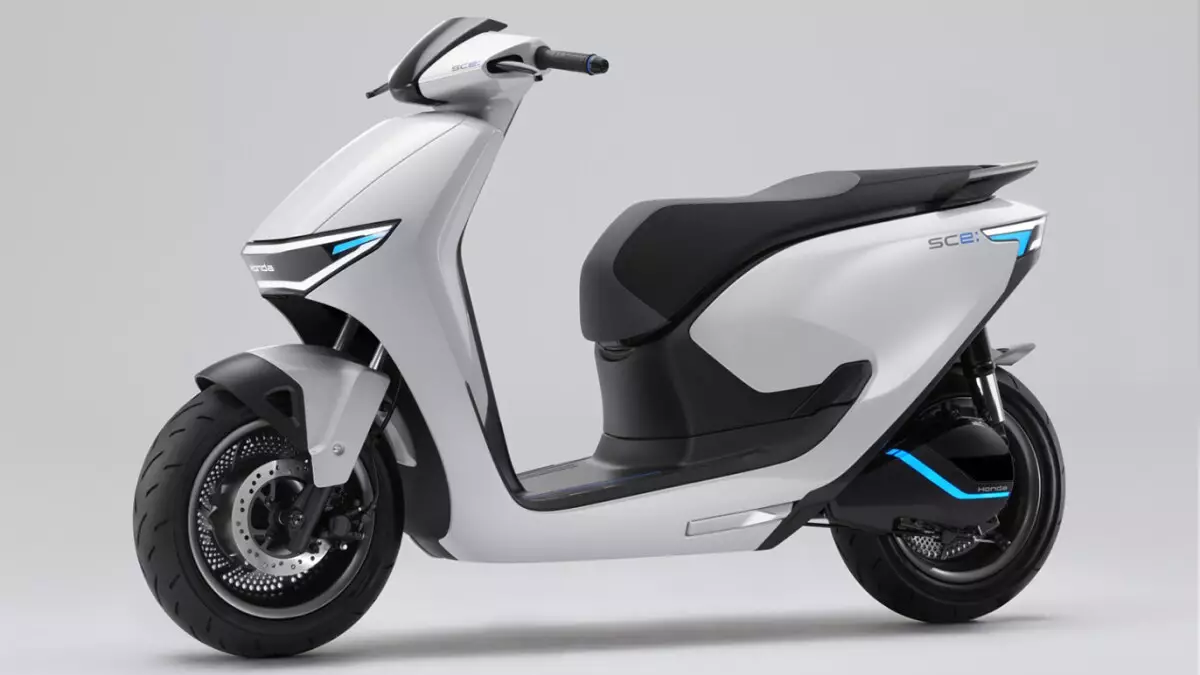The electric two-wheeler segment in India is experiencing unprecedented growth, and 2023 has proven to be a pivotal year for this burgeoning market. As the Indian government intensifies its push for sustainable transportation solutions, numerous automotive manufacturers are making significant strides in the development and launch of electric vehicles (EVs). With the anticipation surrounding the Bharat Mobility Global Expo 2025, scheduled for January in New Delhi, the spotlight is firmly on major industry players who are set to introduce their innovations. This article delves into upcoming electric scooters from prominent brands and examines how they are poised to reshape the landscape of urban mobility.
One of the most eagerly awaited entrants in the electric scooter market is Honda’s Activa EV, set to make its debut in March 2025. Building on the renowned legacy of the Activa series, this electric variant promises to capture the hearts of Indian consumers. Early insights suggest that the Activa EV may closely resemble the Activa 110, incorporating two detachable Honda Mobile Power Packs that allow for a flexible and convenient battery swapping solution.
In a move indicative of technological advancement, the Activa EV is expected to boast a fully digital touchscreen console, augmented with features such as a keyless start and stop option. Such innovations not only enhance user experience but also position Honda favorably in the highly competitive EV market. With an estimated range exceeding 100 kilometers on a full charge and a price point around ₹1 Lakh, the Activa EV is likely to challenge contemporaries such as the Ola S1, TVS iQube, and Ather 450 directly.
The TVS Motor Company is also gearing up for significant contributions to the electric segment. Reports suggest that TVS plans to unveil two distinct electric vehicles within the next six months: one tailored for the business-to-business (B2B) market and the other being an electric version of the well-established TVS Jupiter scooter. The Jupiter EV is expected to cater to the everyday commuter, featuring an anticipated range of 70-80 kilometers from a single charge.
With a strategic pricing model likely to keep it below the ₹1 Lakh threshold, the Jupiter EV aims to provide an affordable alternative to consumers who are increasingly leaning towards electric mobility. By diversifying its product offerings, TVS not only addresses varied consumer needs but also reinforces its position as a leader in the Indian automotive landscape.
As the electric two-wheeler landscape expands, Suzuki is also stepping into the fray with its much-anticipated Burgman EV, scheduled to hit production in December 2024. Known for its stylish design, the Burgman brand has garnered a loyal following, and its electric counterpart aims to capitalize on this established reputation. Unlike some competitors, the Burgman EV is expected to be equipped with a fixed battery pack, a shift from prior speculation about a detachable system.
Suzuki has set ambitious annual sales targets for the Burgman EV, aiming for 25,000 units, indicating strong confidence in the product’s market viability. The anticipated unveiling at the Bharat Mobility Global Expo 2025 aligns with the brand’s strategic efforts to establish a foothold in the ever-evolving electric scooter market.
As we stand on the brink of 2025, the electric two-wheeler segment in India appears to be on the verge of explosive growth. With giants like Honda, TVS, and Suzuki preparing to launch their cutting-edge products, consumers can expect to witness a fierce display of competition characterized by innovative features, competitive pricing, and a renewed commitment to sustainability. This trajectory not only aligns with consumer demand for eco-friendly transportation but also marks a significant shift towards a greener future for urban mobility in India. As the global automotive landscape leans frequently toward electrification, India’s electric two-wheeler revolution is ‘charged’ with potential.

Leave a Reply